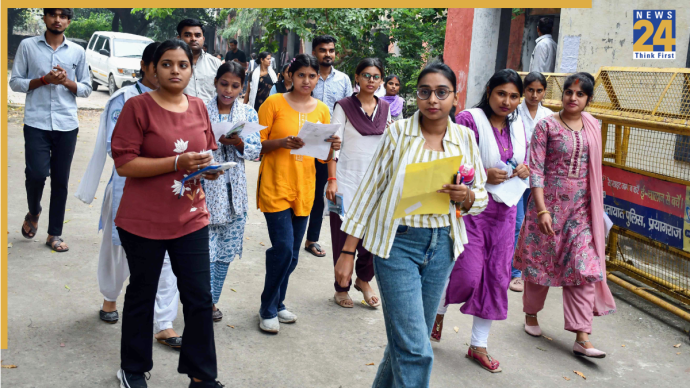 – By Brij Khandelwal
– By Brij Khandelwal
A new mission has been launched to transform Hindu places of worship into SMART entities through technological intervention and professional management.
Temples in India and in more than 50 countries will be facilitated to become “Smart Temples” through an innovative digital platform called “Temple Connect.”
Launched recently by Giresh Kulkarni this network operating like Uber or Ola, will connect temples and provide them with professional management know-how to get over myriad hassles. The project aims to modernize, upgrade, and standardize management techniques which will bring a huge relief to millions of devotees, who are often at the receiving end.
Sharing details Giresh Kulkarni said “For centuries, temples have been the epicenters of collective operations management, with traditions and rituals at their core. However, the contemporary era of technological advancements has prompted many temples worldwide to adopt innovative solutions for the convenience of devotees.”
The “Smart Temples Mission” is a unique initiative set to modernize temples by leveraging technology to enhance administration, streamline operations, and improve overall management. This mission addresses a wide range of crucial aspects including safety, security, surveillance, disaster planning & management, mobile toilets or convenience rooms, festival coordination, food management, augmented reality (AR), virtual reality (VR), funds management, and more, Kulkarni explained.
In recent years, temple footfalls have increased but there has not been a corresponding upgradation or expansion of facilities. A significantly large number of Indians now mix pleasure tourism with pilgrimage. The religious events and periodic spiritual congregations at the temples have been attracting millions of devotees. Some centres like Vrindavan or Goverdhan in Mathura see round-the-year activities drawing huge crowds, but the management has not been streamlined resulting in avoidable hassles and tragedies unfortunately.
This complex situation is now being addressed and a systematic effort is being made to make a visit to a temple pleasant and memorable.
Kulkarni said “Smart temples boast an array of features, including state-of-the-art security and monitoring systems that ensure the safety of devotees and their belongings, providing a sense of security. Additionally, digital donation systems Block chain-based donation management systems make contributing to temples more accessible in an era where cashless transactions are preferred. This not only ensures efficiency but also enhances transparency in financial management for temple authorities. Moreover, smart temples play a role in environmental sustainability by efficiently managing resources like electricity and water. The ‘Smart Temples Mission’ is committed to bridging any gaps in the efficient management of the temple ecosystem throughout the country, to begin with, and extend it globally at all places of devotion and spirituality.”
With its extensive network of temples and a presence in over 57 global locations, Temple Connect is actively collaborating with temple trusts, innovators, organizations with specialized solutions, technology providers, and service providers across the globe through the Smart Temples Mission. Their shared mission revolves around ensuring a “Convenience Centric Approach for the Devotee or Pilgrim through the Smart Temples Mission,” which not only boosts temple and pilgrim tourism but also supports the flourishing of temple-dependent economies. Leveraging its wealth of expertise and reach covering over 9,864 temples in various locations, Temple Connect offers easily accessible information online through its social media platforms for devotees of all kinds of temples, big and small.
Temple Connect aims to Document, Digitalise, and Distribute this Devotional and Spiritual Wealth for the generations to know, explore, and share.
In the coming months, Temple Connect will host 52 major events across the country to bring together temple management, government representatives, and technical and management specialists, to draw up comprehensive plans for modernizing the infrastructural base, introduce new pilgrim management techniques, work on SOPs for temple management driven education. “The most disorganized sector needs to be organized for better experience and spiritual fulfillment.” Efforts are also being made to persuade bigger temples to adopt smaller temples and provide meaningful support. A Global Temple Registry will document important details, historical background, resources, management personnel, etc of various temples.
The Braj area, with Mathura as its centre, has thousands of temples, big and small. Most are not able to sustain themselves, despite their glorious historical past. “The temple ecosystem has to be preserved in its pristine form and help provided to sustain the spiritual heritage,” said Jagan Nath Poddar, convener of the Friends of Vrindavan. “The holy town once had over 5000 temples, but now for want of support, most smaller ones have either downed shutters or are struggling. An initiative like the Temple Connect will be a huge boost to the temple culture of Sri Krishna Land, Poddar added.












